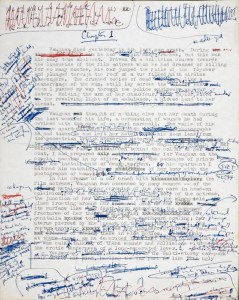How Not to Criticize a Book Reviewer
As a book reviewer, I obviously give out a lot of criticism so of course I’m equipped to take a lot of criticism. I keep an open mind and weigh pretty much everyone’s opinion carefully to see whether it has merit or not. I listen to the feedback my readers give me through polls and comments as well as read articles about how to improve my blog. Improving my blog is a constant work in progress, if I’m honest so I do like criticism. However, there are right and wrong ways to go about criticizing a book reviewer and/or their reviews.
 Criticism #1: “[A rebuttal of my review saying that my 1 star rating was not deserved.] This was written by an entire class of very exasperated middle schoolers who just finished reading the novel.”
Criticism #1: “[A rebuttal of my review saying that my 1 star rating was not deserved.] This was written by an entire class of very exasperated middle schoolers who just finished reading the novel.”
There are a lot of problems with criticizing something this way, but the main logical fallacy is this: [x] group of people liked [y] therefore you should. This is utterly ridiculous and I would have expected better from the teacher (yes, a teacher said this!) who criticized my review of The Outsiders. That’s like saying lots of middle schoolers a couple of years ago loved Justin Bieber therefore I should like Justin Bieber. Anyone with a brain can dispute that logic, believe me.
Quite frankly, I don’t give a crap if an entire class of middle schoolers liked The Outsiders. This is arrogant of me but I think I have slightly more reading experience than they do, considering I have averaged 200 books per year for well over a decade. Is my opinion more valid than theirs? No, but it’s certainly more informed. In the end, what’s wrong with criticizing a review like this is the idea that one group likes something and therefore everyone should like it. It’s ridiculous.
 Criticism #2: You criticized the editing in my novel but you made a mistake in your review!
Criticism #2: You criticized the editing in my novel but you made a mistake in your review!
In this specific case I did in fact make a spelling mistake in my review after criticizing the author for not getting a better editor. The difference in this scenario is this: I am a book reviewer who is her own editor and writes for free while this person was an author who is trying to sell her work yet had spelling and grammar errors occurring in various places throughout her novel. Does criticizing the editing and then making a simple editing mistake make me a hypocrite? Well, sort of.
But the crucial difference is that I’m not trying to sell my work; this author was. Authors should be held to a much higher standard than a blogger who writes for free. Anyone who doesn’t like my grammar can simply click away from my blog but someone who has paid good money to read a novel riddled with errors is getting ripped off. To me, that’s a pretty important distinction.
 Criticism #3: You’ve never written a novel so you can’t possibly criticize novels.
Criticism #3: You’ve never written a novel so you can’t possibly criticize novels.
Forgive me while I roll my eyes. This is a common attack by disgruntled authors after they get a bad review. Even in the general public there seems to be the common misconception that you have to do something to be able to criticize it. Once again, this is ridiculous.
Very few people sing professionally but everyone is guilty of saying “this band sucks” or “this singer couldn’t hold a tune in a bucket”. Almost no one has gone sailing around the world but almost everyone criticized that couple for attempting to sail around the world with small children. Of course there’s a difference between criticism from someone who has done something and criticism from someone who has not but that doesn’t mean that the latter’s criticism is somehow invalid. When I write a review I’m criticizing the novel from the point of view of a reader. As a reader I know what I like and what I don’t, when grammar/spelling mistakes occur and when certain plot elements are weak. You don’t have to be a writer to point those out.
Basically, these are the 3 worst criticisms of my reviews/me that I’ve ever had. Of course there are very valid ways to criticize something I’m doing or something I’ve said in a review: by stating your opinion and supporting it with evidence. It also helps to run your criticism through a test case (putting it in a different scenario to see if it’s valid, like I did with the first criticism). I, like everyone else on this planet, am not above criticism. Some criticism I’ve received has been very valid and has helped me become a better person and a much better blogger.
So what do you think of these examples of bad criticism? How do you personally sort valid criticism from invalid criticism?

15 comments